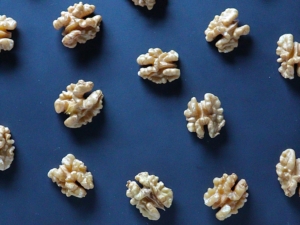
AC Immune bags FDA fast track designation
Swiss AC Immune and its partner Janssen Pharmaceuticals Inc have been granted FDA Fast Track Designation for their active anti-pTau vaccine ACI-35.030/JNJ-2056 to treat Alzheimer's disease.
Lausanne-headquartered neurodegeneration specialist AC Immune SA and its commercialisation partner Janssen Pharmaceuticals Inc/J&J have been given the opportunity for faster development and market approval in the US through a Fast Track designation granted by the U.S. Food and Drug Administration (FDA) for its phospho-tau-targetting Alzheimer’s vaccine ACI-35.030/JNJ-2056. The ReTain Phase IIb proof of concept study, which may now become a pivotal trial through the FDA designation, has just started enrolment of symptom-free patients and is expected to provide results in 2029.
According to AC Immune CEO Dr. Andrea Pfeifer, a previous Phase Ib/IIa study has demonstrated target specifity of ACI-35.030//JNJ-205 – derived from AC Immune’s SupraAntigen platform – that was licenced by Janssen Pharma’s parent company Johnson & Johnson (J&J) in 2015. ReTain is designed to test the hypothesis that JNJ-2056 has a disease-modifying effect that can delay or prevent the onset of cognitive impairment or other clinical symptoms in individuals with preclinical AD through inhibition of seeding and spreading of pathological Tau. The study will include approximately 500 cognitively normal, Tau-positive subjects, who will be randomized in a 1:1 ratio to a single dose level of JNJ-2056 or placebo and administered as intramuscular injections for a maximum of four years. The primary endpoint will measure cognitive decline as assessed by the Preclinical AD Cognitive Composite 5 (PACC-5) score. The key secondary efficacy endpoint will assess the effect of JNJ-2056 on the propagation and/or accumulation of Tau pathology compared with placebo, as measured by Tau PET imaging.
The intact tau protein is a cytosolic microtubule-associated protein that binds microtubules (components of the cytoskeleton) and is involved in their correct assembly. Excessive phosphorylation (hyperphosphorylation) of tau can lead to uncontrolled aggregation of the proteins. This results in so-called neurofibrillary tangles (also known as Alzheimer’s fibrils), which can be detected in Alzheimer’s disease and other tauopathies. As part of dementia diagnostics, the levels of total tau, phospho-tau and β-amyloid in the cerebrospinal fluid are determined




 Tetraneuron SL - Álvaro García
Tetraneuron SL - Álvaro García